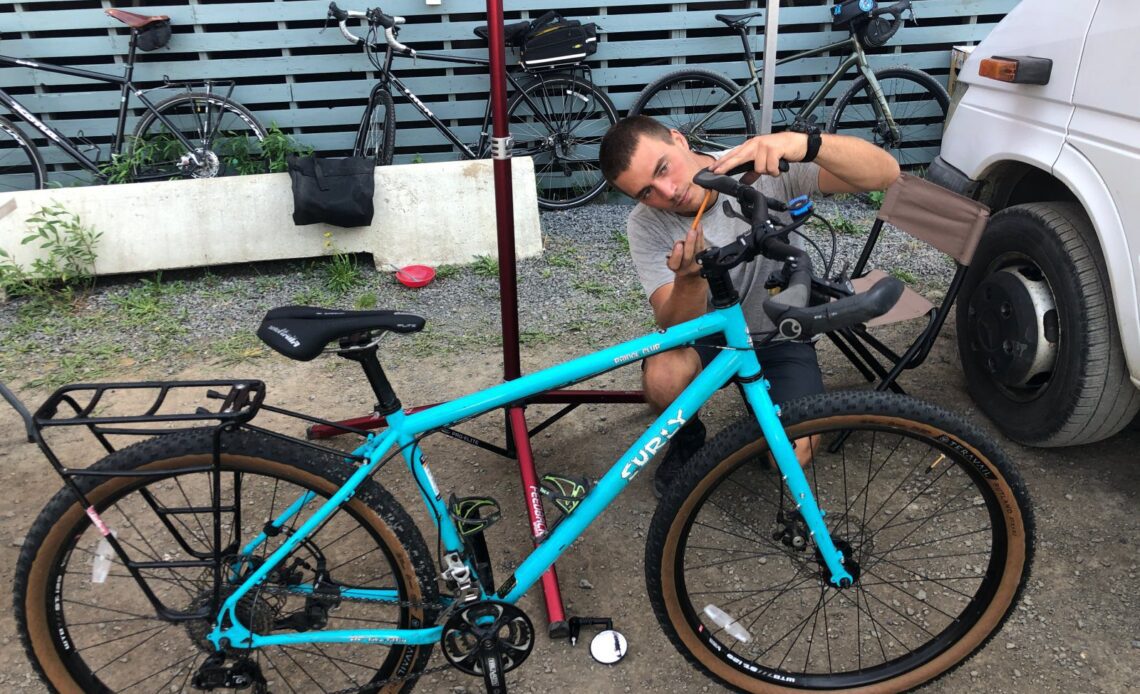I’m two months and about 5,000 km into my traverse of the continent. That’s a little more than a third of time and distance. Almost from the start I’ve had niggling issues with my bike, which never surfaced all the time I was training on it. My cranks were giving me knee problems; the brakes were squeaky and slow to respond; my front wheel had a tendency to judder, my tubeless tires consistently lost air. Every few days I’d rather apologetically approach Malcolm. Malcolm is the tour’s bike mechanic. He’s about six-foot one, blonde and has something of the look of Steve McQueen, of Bullitt and Getaway, cool, and quizzical as he is assessing exactly what you are trying to say.
Cyclists swear by the mechanic they have finally found after months or even years of searching. That mechanic is a combination of wonder worker, diagnostician par excellence and father confessor. When talking about the ills of your bike, it is as if you are revealing your troubled soul, and in both cases you are often inflicted with incoherence.
“I have a judder.”
“What do you mean by judder?”
“Um, the wheel kinda vibrates.”
“What is the wheel doing exactly?”
“I don’t know what it’s doing; I just feel it.”
“Uh-huh.”
So these conversations go. You talk of judders, squeaks, rattles, rubbings and all the other ways in which your bike whispers or shouts at you in a tongue you never really mastered. Which is why you search for the mechanic who truly knows the language.
That’s where Malcolm comes in. There seems to be a particular quality in the best mechanics I have come across of taciturnity and precision. Malcolm listens and then listens some more. There are silences as he ponders the exact meaning of what you are trying to convey. He probes gently, but persistently. He is intent on getting to the heart of the matter. He is that physician who goes the extra mile to ensure that the exact and necessary cure is effected.
I watch him work from a distance, he needs to be totally focused on the task at hand, and am in awe at the swiftness, dexterity and care with which he manipulates the various parts of the machine. Perhaps not a machine for him. He removes a derailleur as if it were an organ ready to be transplanted.
He is not working in the ideal conditions of a bicycle mechanic shop with all the tools he needs at his disposal, neatly organized and arrayed on pegboards. There isn’t a variety of spare parts….
Click Here to Read the Full Original Article at Canadian Cycling Magazine…

